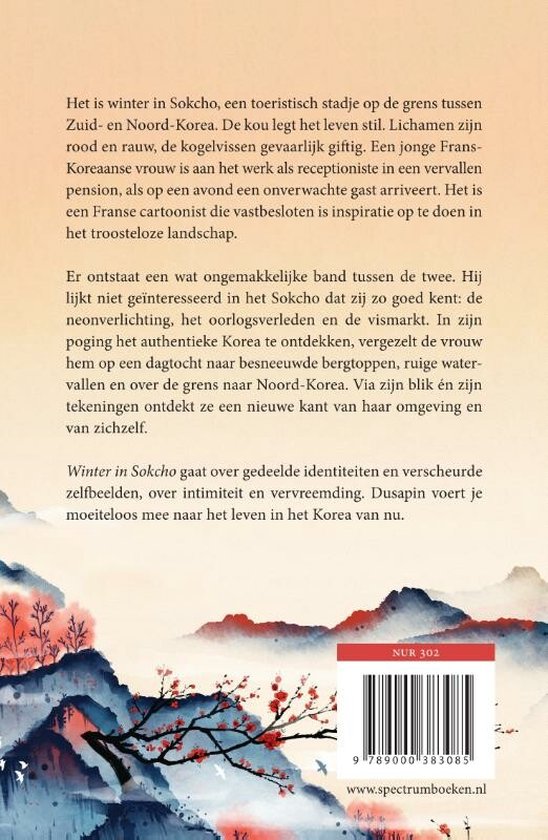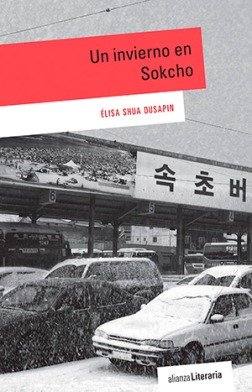


There are repeated references to the narrator’s weight and her status as an unmarried woman, both of which give rise to pressure from the mother. Moreover, she is being made to feel inadequate by her conventional Korean mother, a woman who sells seafood at the nearby fish market.

The narrator – who remains unnamed throughout – is something of a misfit in her community, her French-Korean origins marking her out as a source of speculation amongst the locals. Dusapin’s story revolves around a young woman in her early twenties, currently working as a cook and housemaid in a run-down guest house struggling to keep up with the new hotels in the city. The setting for the novella – this French-Korean writer’s debut – is Sokcho, a coastal city in the far north-east of South Korea, close to the North Korean border. A beautiful, dreamlike story encompassing themes of detachment, fleeting connections and the pressure to conform to society’s expectations. Elisa Shua Dusapin’s voice is distinctive and unmistakable.I loved this one.

An exquisitely-crafted debut, which won the Prix Robert Walser, Winter in Sokcho is a novel about shared identities and divided selves, vision and blindness, intimacy and alienation. As she’s pulled into his vision and taken in by his drawings, she strikes upon a way to finally be seen. But he takes no interest in the Sokcho she knows-the gaudy neon lights, the scars of war, the fish market where her mother works. When she agrees to accompany him on trips to discover an “authentic” Korea, they visit snowy mountaintops and dramatic waterfalls, and cross into North Korea. One evening, an unexpected guest arrives: a French cartoonist determined to find inspiration in this desolate landscape. A young French Korean woman works as a receptionist in a tired guesthouse. Bodies are red and raw, the fish turn venomous, beyond the beach guns point out from the North’s watchtowers. It’s winter in Sokcho, a tourist town on the border between South and North Korea.


 0 kommentar(er)
0 kommentar(er)
